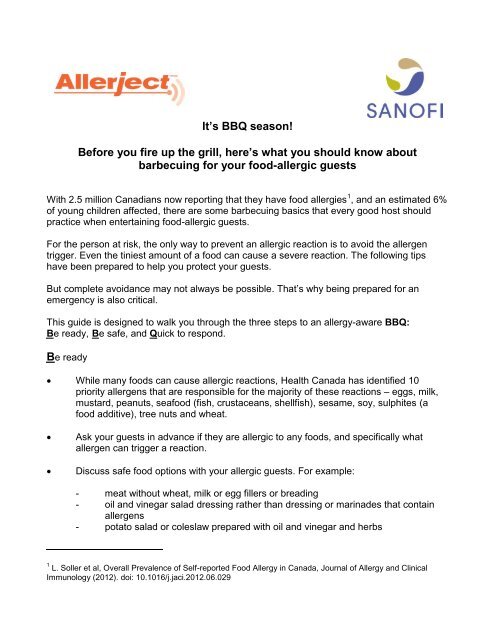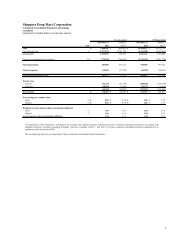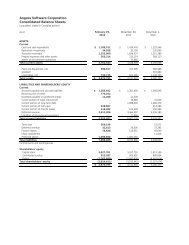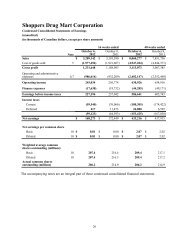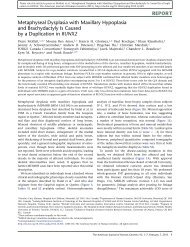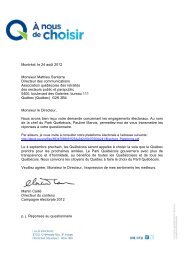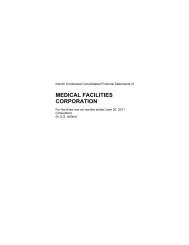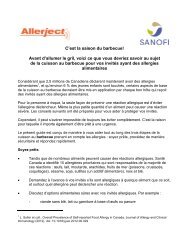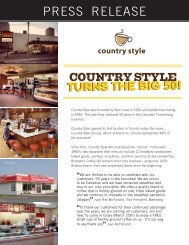Guide to allergy-aware BBQ. - Allerject
Guide to allergy-aware BBQ. - Allerject
Guide to allergy-aware BBQ. - Allerject
You also want an ePaper? Increase the reach of your titles
YUMPU automatically turns print PDFs into web optimized ePapers that Google loves.
It’s <strong>BBQ</strong> season!<br />
Before you fire up the grill, here’s what you should know about<br />
barbecuing for your food-allergic guests<br />
With 2.5 million Canadians now reporting that they have food allergies 1 , and an estimated 6%<br />
of young children affected, there are some barbecuing basics that every good host should<br />
practice when entertaining food-allergic guests.<br />
For the person at risk, the only way <strong>to</strong> prevent an allergic reaction is <strong>to</strong> avoid the allergen<br />
trigger. Even the tiniest amount of a food can cause a severe reaction. The following tips<br />
have been prepared <strong>to</strong> help you protect your guests.<br />
But complete avoidance may not always be possible. That’s why being prepared for an<br />
emergency is also critical.<br />
This guide is designed <strong>to</strong> walk you through the three steps <strong>to</strong> an <strong>allergy</strong>-<strong>aware</strong> <strong>BBQ</strong>:<br />
Be ready, Be safe, and Quick <strong>to</strong> respond.<br />
Be ready<br />
While many foods can cause allergic reactions, Health Canada has identified 10<br />
priority allergens that are responsible for the majority of these reactions – eggs, milk,<br />
mustard, peanuts, seafood (fish, crustaceans, shellfish), sesame, soy, sulphites (a<br />
food additive), tree nuts and wheat.<br />
<br />
<br />
Ask your guests in advance if they are allergic <strong>to</strong> any foods, and specifically what<br />
allergen can trigger a reaction.<br />
Discuss safe food options with your allergic guests. For example:<br />
- meat without wheat, milk or egg fillers or breading<br />
- oil and vinegar salad dressing rather than dressing or marinades that contain<br />
allergens<br />
- pota<strong>to</strong> salad or coleslaw prepared with oil and vinegar and herbs<br />
1 L. Soller et al, Overall Prevalence of Self-reported Food Allergy in Canada, Journal of Allergy and Clinical<br />
Immunology (2012). doi: 10.1016/j.jaci.2012.06.029
The goal is <strong>to</strong> eliminate the offending allergens from the menu, or at least <strong>to</strong> provide<br />
your allergic guests with a meal specially prepared for them.<br />
When shopping, read the food labels carefully and avoid any ingredients that contain,<br />
or say they ‘MAY CONTAIN’, relevant allergens. And keep the labels – your allergic<br />
guests will want <strong>to</strong> see them.<br />
Know where ‘hidden allergens’ may be lurking. For example:<br />
- eggs in mayonnaise, anchovies (fish) in Caesar dressing, wheat in soy sauce<br />
and other marinades, sesame seeds in breads, butter (milk) used <strong>to</strong> caramelize<br />
onions or <strong>to</strong> sauté mushrooms<br />
- cakes and cookies are often a source of hidden allergies as bakery goods<br />
prepared and sold on site are not required <strong>to</strong> have an ingredient list<br />
<br />
Remind your food-allergic guests <strong>to</strong> bring their epinephrine au<strong>to</strong>-injec<strong>to</strong>r. And when<br />
they arrive, get them <strong>to</strong> show you how it works in case you have <strong>to</strong> assist them in a<br />
life-threatening emergency.<br />
Be safe<br />
<br />
<br />
<br />
<br />
<br />
<br />
<br />
Avoid cross contamination when handling, grilling and serving. Remember, even the<br />
smallest amount of contact can produce a severe allergic reaction.<br />
Clean all food contact surfaces with a commercial cleaner.<br />
Use separate platters, utensils, bowls, knives and other equipment for allergen and<br />
non-allergen foods.<br />
When barbecuing, cook the allergen-free meal first. Keep it covered and away from<br />
any splatter caused by other foods during cooking. You can also use aluminium grilling<br />
trays <strong>to</strong> keep the foods separate.<br />
Invite your allergic guests <strong>to</strong> be first in the buffet line.<br />
Buffet-style meals may pose a major risk because of the cross-contamination caused<br />
by the sharing of utensils and mixing of food. Place condiments, sauces or dressings<br />
in a separate location <strong>to</strong> avoid dripping or spilling. Pre-packaged, single-serve<br />
condiments are a good option <strong>to</strong> consider.<br />
Place a printed ingredient list beside each dish so that the allergic guest can make a<br />
safe choice.<br />
2
It is commonly believed that extreme heat during cooking will change the make-up of<br />
the food and remove the protein that can cause a reaction. THIS IS NOT TRUE.<br />
Cooking the food using extreme heat will not make the food safe for allergic<br />
individuals.<br />
Quick <strong>to</strong> Respond<br />
<br />
<br />
<br />
Should one of your guests experience an allergic reaction, you should be able <strong>to</strong><br />
identify the symp<strong>to</strong>ms and take appropriate action.<br />
In such an emergency, it is critical that the individual receive epinephrine right away. If<br />
a guest is not able <strong>to</strong> administer the injection themselves, you may have <strong>to</strong> assist. You<br />
should know how <strong>to</strong> use the epinephrine au<strong>to</strong>-injec<strong>to</strong>r.<br />
The emergency steps <strong>to</strong> follow are:<br />
- give epinephrine at the first sign of a reaction<br />
- call 9-1-1 or local emergency medical service<br />
- give a second dose in 5-15 minutes if the reaction continues or gets worse<br />
- get the person <strong>to</strong> the nearest hospital right away (preferably by ambulance)<br />
This information was prepared by Marilyn Allen, food <strong>allergy</strong> and anaphylaxis consultant.<br />
Content was developed from Allergen Training Basics for the Foodservice and Food Retail<br />
Industry, published and distributed by Anaphylaxis Canada and TrainCan Inc.<br />
The <strong>allergy</strong>-<strong>aware</strong> <strong>BBQ</strong> program is sponsored by <strong>Allerject</strong>, the first ‘talking’ epinephrine<br />
au<strong>to</strong>-injec<strong>to</strong>r for the emergency treatment of anaphylaxis. To learn more, please visit<br />
www.allerject.ca<br />
3


